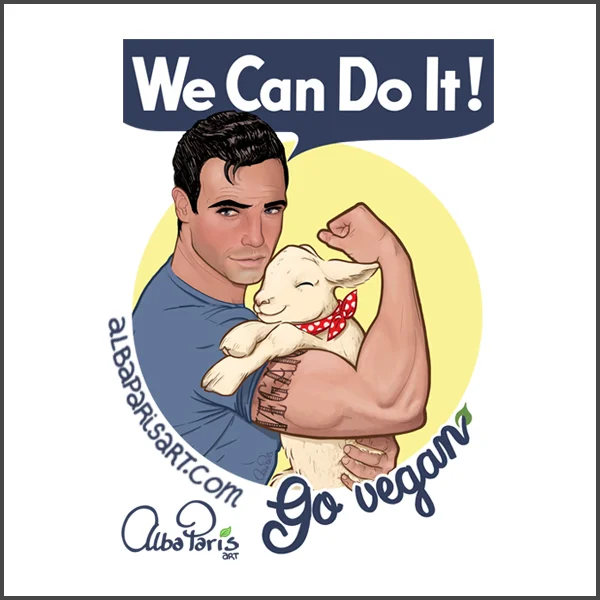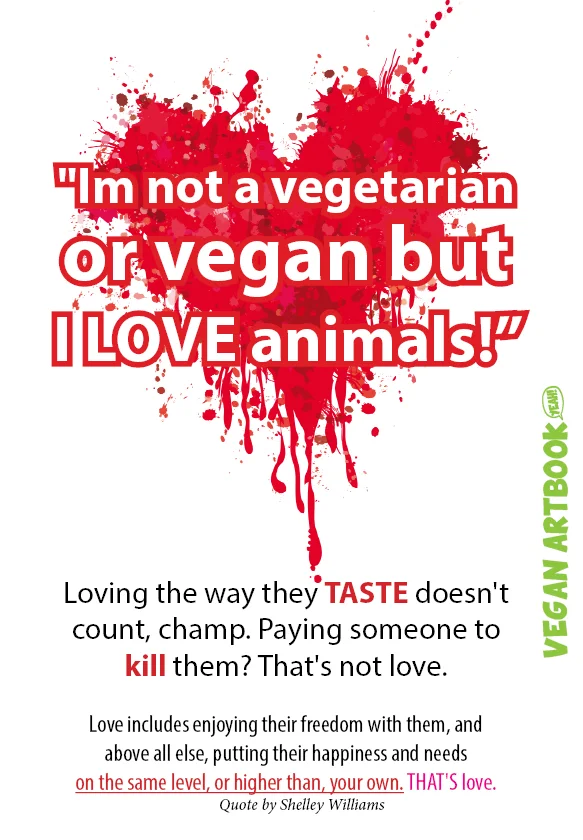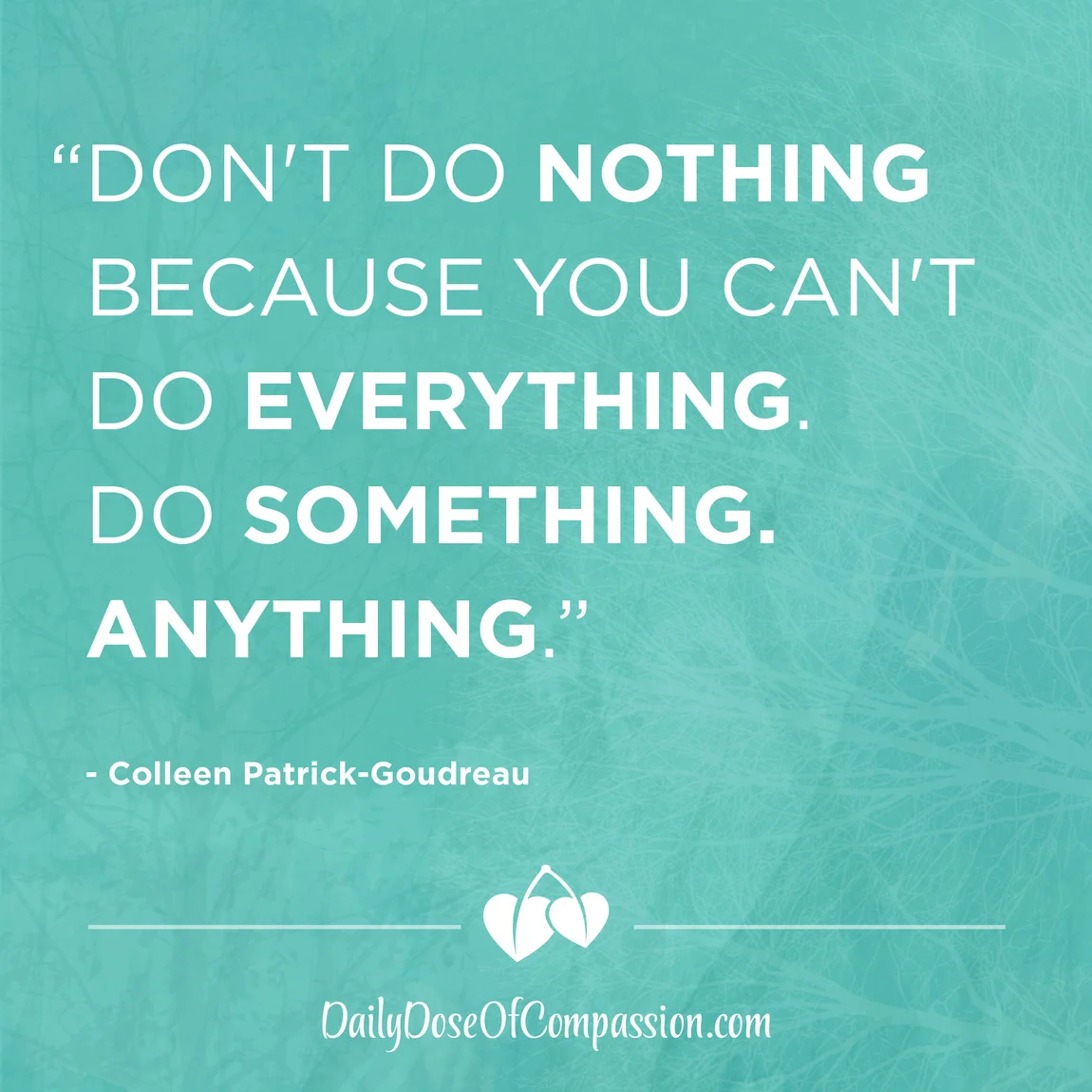For years, I had purposely avoided reading articles about factory farmed animals because 1) Ignorance was bliss and the truth was too depressing, and 2) I knew that once I went down that route, there was no way my conscience would let me continue with my meat-, dairy- and egg-filled diet.
It wasn’t until I read an article about how sick animals are making us sick that I really thought about the horrible conditions farm animals face. They have to be pumped with antibiotics just to survive long enough to be slaughtered for our own selfish appetites. What kind of existence is that? It really hit home for me. I knew that I had to change my diet to help reduce the pain and torture inflicted on an innocent being.
Becoming Pescetarian (Commonly Misheard as "Presbyterian")
I quit eating meat the second I made the decision to, but I still only became a pescetarian. I was one for three years, although I'd only occasionally eat seafood at restaurants, which wasn't all that much. It wasn’t until I kept seeing dead sea lions (on a weekly basis) along the beach that it struck me just how bleak the ocean’s health was and its effects on marine life.
I started reading about the reasons behind it and why thousands of dead or starving seals and sea lions (many of them pups) were washing up in record numbers along the California coast (and beaches all over the U.S.). The cause was global warming—nature’s grim reaper. Due to increasing sea temperatures, anchovies and other food sources were moving deeper and further into the oceans, leaving many seals and sea lions emaciated and delirious or dead.
Transition to Vegetarianism
On top of the already mounting problems caused by global warming, the demand for seafood has increased overfishing—creating a perfectly merciless storm for the already imperiled marine life. And just as I did with meat three years ago, I quit eating seafood in an instant. After about half a year of being vegetarian, I started shifting gears and mentally preparing myself for veganism. My trip to a farm animal sanctuary affirmed my conviction. I began opening myself up to the rampant horror stories in the dairy and egg industries: the ugly truth behind dairy cows and their “rape racks”, male calves sold for veal so that they wouldn't take the milk from their mothers (which was rightfully theirs), male chicks ground up alive (since they're of no use in the egg production industry), and of course the gruesome living conditions of egg-laying hens.
Becoming Vegan
From there I ditched eating eggs and about 80% of dairy (largely due to my cheese and gelato weaknesses). I was also still eating products containing dairy and eggs, which I feel terrible about now. Finally, however, I saw THE video by Gary Yourofsky on YouTube, which really made me face the ugly truth of my vegetarian diet: There is no such thing as happy dairy cows (in some aspects, it's even more cruel than animals solely slaughtered for meat).
Dairy cows are used and abused mercilessly until their weak, infected, tortured bodies can no longer produce milk ... and are then sent off for slaughter. And when it comes to eggs, chickens are arguably the most abused animals on this planet.
The Verdict
However way you arrived at this post, and whether or not you had any intention of becoming vegan, my advice is this: make compassionate choices--within your diet and lifestyle (e.g., vegan-friendly clothing, accessories and body care products as well as eco-friendly living). The only regret you'll have is that you didn't become vegan sooner or that you didn't become vegan overnight. To the meat eaters, pescetarians and vegetarians who want to go vegan, thank you for having an open mind and heart, and for your desire to live your values.
Even if you can’t bring yourself to adopt a 100% plant-based diet just yet, do it on your own pace. Minimizing your consumption of meat, dairy, eggs and seafood is better than not doing anything at all. However, please be mindful that for every instance and every day you do not choose vegan, over 100 million animals per day are viciously tortured, abused and slaughtered to meet the demands of consumers.
Be empathetic. Make compassionate choices.


